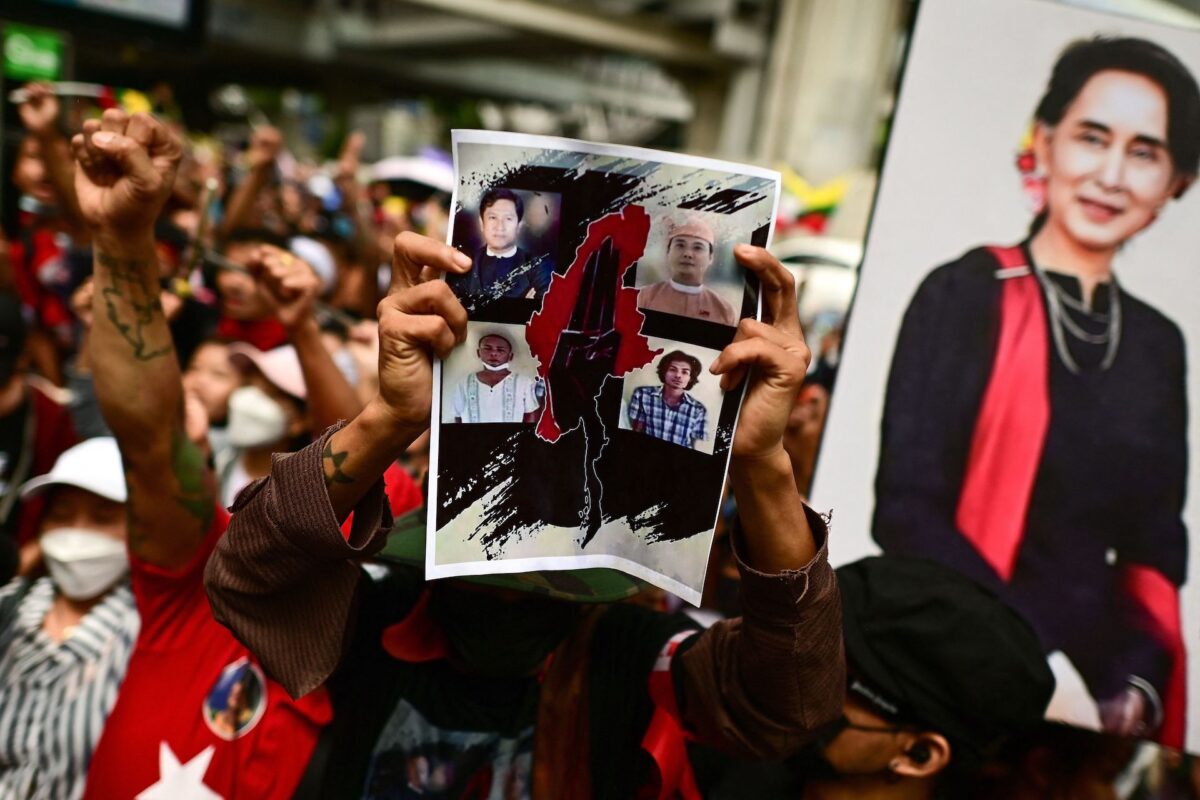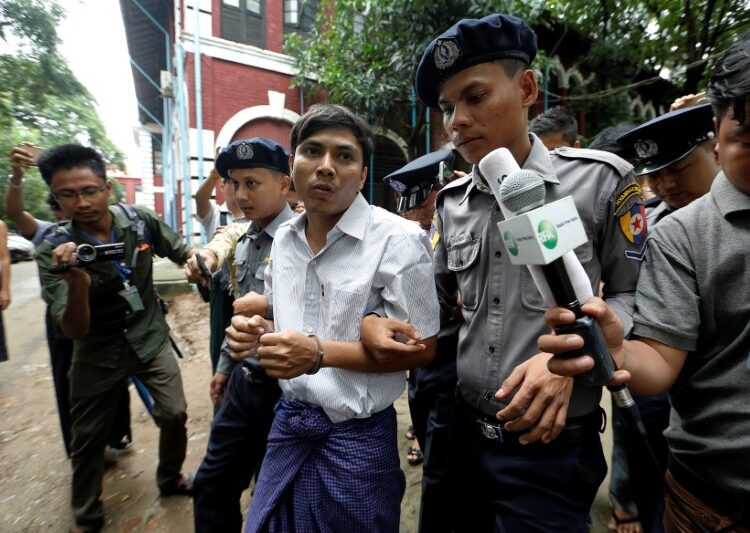The number of journalists imprisoned throughout the world has skyrocketed over the past year, according to a new annual report by the nongovernmental organization Reporters Without Borders (RSF).
According to RSF, a total of 533 journalists are detained in prisons worldwide, up from 488 in 2021, and marking a 13.4 percent increase year-over-year.
Additionally, the number of journalists killed in 2022 has jumped to 57, marking an 18.8 percent increase compared to 2021, which RSF linked to increased reporting on the war in Ukraine.
The report found that another 65 journalists are currently being held hostage, roughly the same number at this time last year, and 50 journalists have gone missing in the past 20 years.
According to RSF, the top five jailers of journalists in 2022 are China with 110 journalists imprisoned, Burma (also known as Myanmar) with 63 journalists behind bars, and Iran with 47 reporters in prison.
Vietnam and Belarus have detained 39 and 31 reporters, respectively, the report said. The majority of imprisoned journalists around the world are being held without a trial.
Authoritarian Regimes Fill Prisons ‘Faster Than Ever’
“Dictatorial and authoritarian regimes are filling their prisons faster than ever by jailing journalists,” said RSF Secretary-General Christophe Deloire in a statement. “This new record in the number of detained journalists confirms the pressing and urgent need to resist these unscrupulous governments and to extend our active solidarity to all those who embody the ideal of journalistic freedom, independence and pluralism.”
China has used a number of methods to increase censorship and surveillance over the years, particularly amid the COVID-19 pandemic and subsequent protests due to the government’s draconian lockdown measures in response to the virus.
Multiple reporters were briefly detained and assaulted while covering the demonstrations in November, including a reporter who works for the BBC.
An annual report published by the Foreign Correspondents’ Club of China (FCCC) in March 2021 found that China utilized its strict COVID-19 prevention measures, intimidation, and visa curbs to limit foreign reporting in 2020, including denying reporters access to sensitive areas and threatening them with enforced quarantine.
“All arms of state power—including surveillance systems introduced to curb coronavirus—were used to harass and intimidate journalists, their Chinese colleagues, and those whom the foreign press sought to interview,” the report found.
At the time, Chinese foreign ministry spokesman Wang Wenbin branded the claims made in the report as “ideological bias against China and fake news in the name of press freedom.”
However, China has ushered in a number of laws in recent years aimed at suppressing information, including the Cyber Security Law in 2017, Provisions on the Governance of the Online Information Content Ecosystem in 2020, the Hong Kong National Security Law of 2020, and the Data Security Law of 2021.

Minority Journalists Targeted More
Elsewhere, arrests of journalists in Burma have increased since the 2021 military coup, while dozens of journalists are reportedly among those to have been arrested in Iran amid a government crackdown on protests that were sparked by the death of Mahsa Amini, a 22-year-old Kurdish woman, in police custody.
The International Federation of Journalists (IFJ) and multiple other organizations have called on the Iranian authorities to free all journalists and media workers who have been imprisoned in the country.
A separate report by the Committee to Protect Journalists, published in December, found that 363 journalists are currently being imprisoned around the world, which also marks a 20 percent increase year-over-year.
According to that report—which uses a different method to calculate the documented cases—Iran, China, Burma, Turkey, and Belarus, respectively, are the top jailers of 2022.
“In a year marked by conflict and repression, authoritarian leaders doubled down on their criminalization of independent reporting, deploying increasing cruelty to stifle dissenting voices and undermine press freedom,” the committee wrote.
That report also noted that journalists from minority groups appear to be targeted more when it comes to imprisonment, with ethnic Uighurs from Xinjiang (where Beijing has been accused of crimes against humanity) making up large numbers of imprisoned journalists.
Read the full article here


